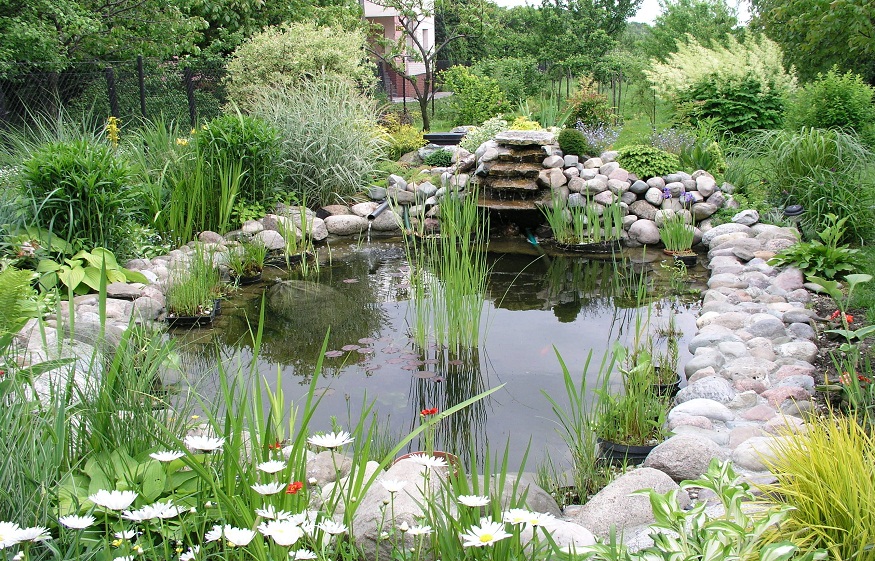The pond is one of the most important features, which can be found in any garden: a beautiful and calm water supply can become a great source of joy and a home for water creatures. But to improve your water quality and keep your pond healthy, it is advisable to have transparent water. This is where a good pond filter comes in the availability of many types and brands in the market decides on the best garden pond filter to go for very complicated. Here is what you should consider to make the right decision in arriving at your final decision.
1. Consider Your Pond’s Size and Volume
The first thing that is done in the process of choosing the filter for the pond is to decide on the size of the pond. Every pond filter has a rating about the volume of water that it can handle and therefore the higher the volume of water you have in your pond, then the bigger your filter should be. Start with the assessment of the capacity of water you expect to have in a pond; to do this, you need to measure the length, width, and depth of the pond.
– Small ponds (under 500 gallons): For small ponds a simple mechanical filter should be adequate.
– Medium ponds (500–1,500 gallons): In the medium ponds mechanical and biological filters are preferably applied.
– Large ponds (over 1,500 gallons): Big ponds need apps that incorporate mechanical as well as biological filtration, and, in many cases, UV lighting to maintain water clarity.
It is also important that the filter capacity one selects should be slightly higher than the pond capacity to handle the load.
2. Choose the Right Type of Filter
Common types of pond filters are three, and in order to help you make the right decision, let us look at how each of them works.
– Mechanical Filters: These filters work at eliminating physical impurities that are easily discernible; these include; leaves, twigs, and fish waste among others. That is how they physically confine matter on the water so that it does not accumulate large forms of debris. Yet they do not remove water quality by which water pollutants are being measured.
– Biological Filters: These filters deploy beneficial bacteria for the decomposition of squalors such as fish waste and decaying plants into their beneficial constituents. Biological filtration assists in the elimination of toxic compounds such as ammonia and nitrites from the water by fish and other organisms present in a pond.
– UV Filters: UV filters employ this light to kill spores of algae, bacteria, and any other microorganisms, that might be present. That will be especially helpful for the removal of green water which originates from alga growths. UV filters keep water clear and free from pathogens which may be rein in water sources.
As for most garden ponds, the most effective type of filter is the **mechanical, biological, and UV filter**, because it gives the perfect balance between water clarity and pond ecosystem.
3. Consider Your Pond’s Fish and Plant Life
Whether it’s the kind of plants you have in your pond or the kind of fish, you will need a filter that conforms to them. If your pond has fish, especially koi or goldfish, the filter should be strong enough to provide with bio-load from fish excrete. Fish excrete ammonia and other toxins that negatively affect water quality and therefore the aqua requires a **biological filter** to neutralize it.
4. Check Flow Rate and Pump Size
The flow rate of the filter is how many gallons of water can be processed by the filter in a single hour. Water flow should be at least the minimum of ½ the volume of your pond per hour. For instance, if you have a 1,000-gallon pond that requires a filtering flow of at least 500 gallons per hour.
The pump should also be one that is sized to the flow rate of the filter that is placed on it. If the pond pump is too small it will not circulate enough water to provide the necessary filtration to maintain a clean pond, however, if it is too large it will cause too much water movement and interfere with plant and fish life.
5. Ease of Maintenance
Think about how simple the filter is going to be to clean. This filter type needs cleaning and back flushing at certain intervals while other types do not need any special attention and are self-cleaning. The filter should be easy to disassemble, clean, and reassemble, but also the filter media should be fairly easy to remove and clean.
Conclusion
Selecting the right pond filter in your garden pond is influenced by the size of the pond, the types of fish and also, plants that are in the pond, and the type of filtration they require. In general, mechanical, biological, and UV filtering are preferred since they have shown the best results. Taking into account the flow rate requirements, pump size, and filter servicing, you will be able only to obtain a filter that shall provide enough clean and transparent water for your ponding plants as well as for all the aquatic creatures.

